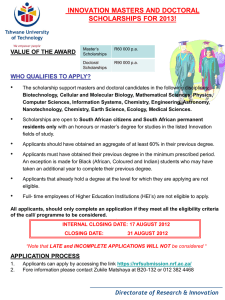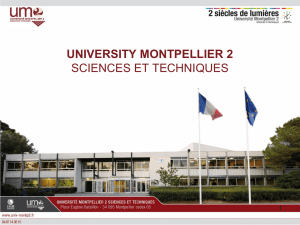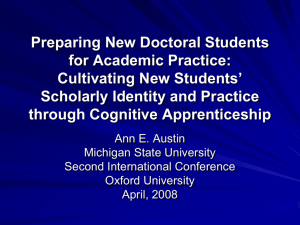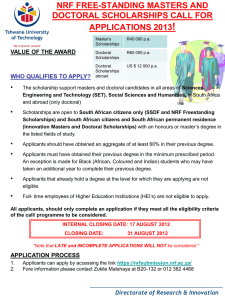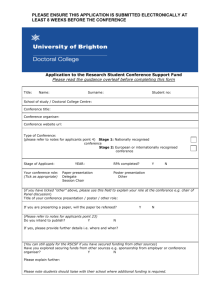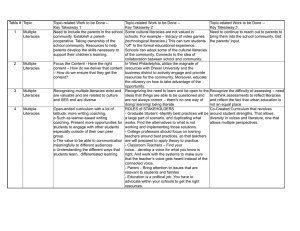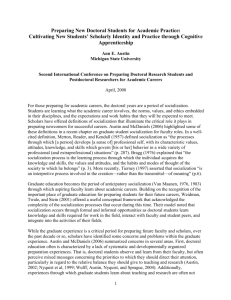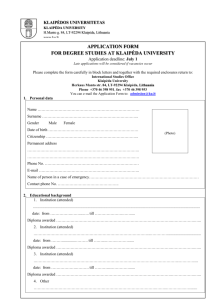2015 Research Statement
advertisement
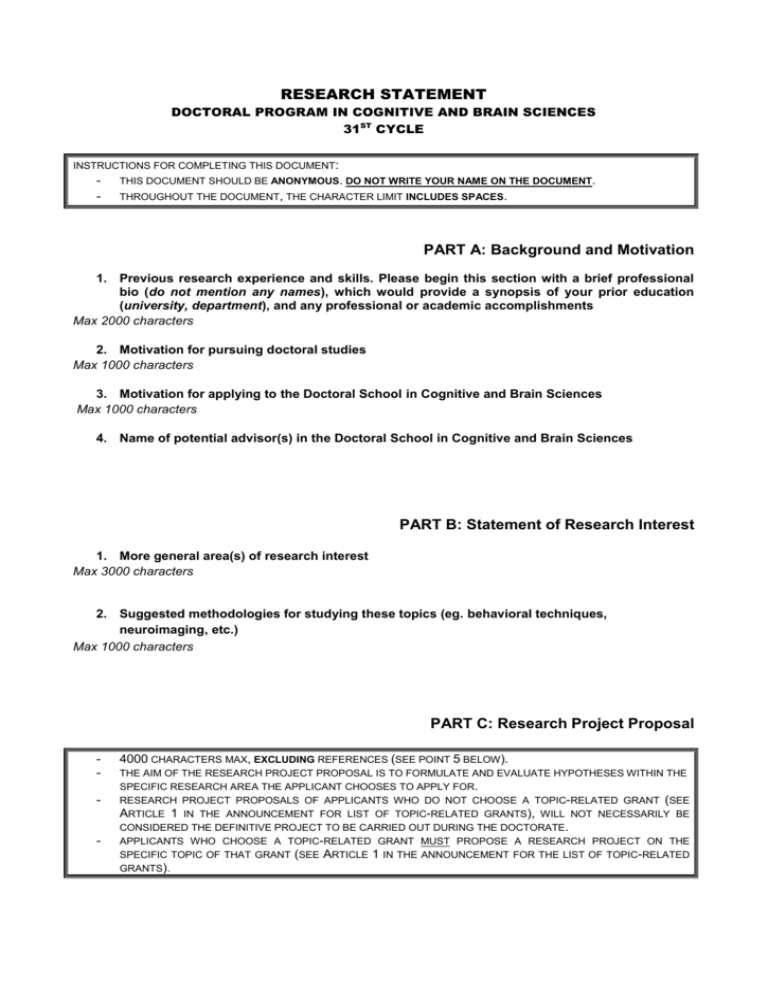
RESEARCH STATEMENT DOCTORAL PROGRAM IN COGNITIVE AND BRAIN SCIENCES 31ST CYCLE INSTRUCTIONS FOR COMPLETING THIS DOCUMENT: - THIS DOCUMENT SHOULD BE ANONYMOUS. DO NOT WRITE YOUR NAME ON THE DOCUMENT. THROUGHOUT THE DOCUMENT, THE CHARACTER LIMIT INCLUDES SPACES. PART A: Background and Motivation 1. Previous research experience and skills. Please begin this section with a brief professional bio (do not mention any names), which would provide a synopsis of your prior education (university, department), and any professional or academic accomplishments Max 2000 characters 2. Motivation for pursuing doctoral studies Max 1000 characters 3. Motivation for applying to the Doctoral School in Cognitive and Brain Sciences Max 1000 characters 4. Name of potential advisor(s) in the Doctoral School in Cognitive and Brain Sciences PART B: Statement of Research Interest 1. More general area(s) of research interest Max 3000 characters 2. Suggested methodologies for studying these topics (eg. behavioral techniques, neuroimaging, etc.) Max 1000 characters PART C: Research Project Proposal - - 4000 CHARACTERS MAX, EXCLUDING REFERENCES (SEE POINT 5 BELOW). THE AIM OF THE RESEARCH PROJECT PROPOSAL IS TO FORMULATE AND EVALUATE HYPOTHESES WITHIN THE SPECIFIC RESEARCH AREA THE APPLICANT CHOOSES TO APPLY FOR. RESEARCH PROJECT PROPOSALS OF APPLICANTS WHO DO NOT CHOOSE A TOPIC-RELATED GRANT (SEE ARTICLE 1 IN THE ANNOUNCEMENT FOR LIST OF TOPIC-RELATED GRANTS), WILL NOT NECESSARILY BE CONSIDERED THE DEFINITIVE PROJECT TO BE CARRIED OUT DURING THE DOCTORATE. APPLICANTS WHO CHOOSE A TOPIC-RELATED GRANT MUST PROPOSE A RESEARCH PROJECT ON THE SPECIFIC TOPIC OF THAT GRANT (SEE ARTICLE 1 IN THE ANNOUNCEMENT FOR THE LIST OF TOPIC-RELATED GRANTS). 2 1. Title of project 2. Introduction 2.1 Theoretical basis and references to the literature on the topic 2.2 Main objectives of the study, research question and/or specific hypotheses 3. Method 4. Expected results, theoretical implications and conclusions 5. References 6. Figures (2 Max) 2


